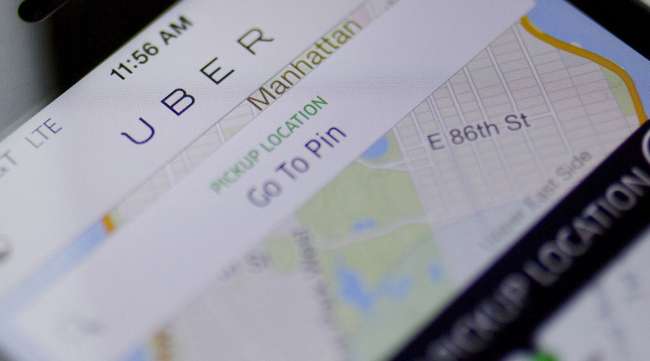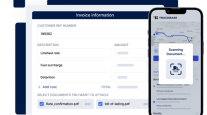Bloomberg News
Uber to Sell Software, Starting With Four-Van Transit Service

[Ensure you have all the info you need in these unprecedented times. Subscribe now.]
Uber Technologies Inc. is getting into software. The company is making the technology that powers its ride-hailing business available to others, starting with public transit agencies.
California’s Marin County transportation providers are the first customers to buy access to Uber’s software in a deal the company announced June 17. The tie-up represents a potential new revenue stream for Uber at a time when the company could use it.
“This is not a one-off. This is a new product and a new business,” said David Reich, head of Uber Transit, adding that the company intends to partner with other transit agencies in the future. “Together we want to make car ownership a thing of the past.”

COVID-19 has placed significant strain on many freight networks. So how are third-party logistics providers adapting to meet these challenges? Host Seth Clevenger chats with two 3PL executives who have had firsthand experience contending with this crisis. Hear a snippet, above, and get the full program by going to RoadSigns.TTNews.com.
But the effort is starting small. The program, called Marin Connect, will power logistics for just four wheelchair-accessible vans when it begins on July 1. Teaming up with Marin Transit and the Transportation Authority of Marin, it will also make public transit schedules and discounts available within the Uber app in the county, and will offer vouchers for riders traveling the last mile to their destinations from transit stops.
The two-year deal will cost $80,000, said Nancy Whelan, the general manager of Marin Transit. “We pilot a lot of things,” Whelan said. “We try to stay nimble.” Marin Transit has also worked with transportation tech companies Lyft Inc. and Via in the past.
Uber has had a rocky year since its initial public offering last spring. With only a few exceptions, Uber shares have consistently traded below their 2019 IPO price. Investor faith in the company has further dipped during the pandemic after shelter-in-place orders decimated its ride-hailing business and delayed its ambitions to turn a profit.
With no clear timeline for returning to pre-pandemic demand levels, the San Francisco-based company last month slashed 25% of its workforce, shut dozens of offices around the world and is abandoning — or considering abandoning — all of its noncore businesses. Surging demand for food delivery has been a bright spot for Uber, but its recent attempt to purchase Grubhub failed. Rival Just Eat Takeaway.com NV agreed to buy Grubhub last week, creating one of the world’s largest meal delivery companies, ready to battle Uber for leadership in North America.
Uber’s effort to re-purpose its software for others to use has been years in the making, according to Reich. Although the first deal is small, it could be the start of a reliable revenue stream in the future in the form of long-term contracts. Uber is now talking with dozens of transit agencies around the world, Reich said.
Want more news? Listen to today's daily briefing:
Subscribe: Apple Podcasts | Spotify | Amazon Alexa | Google Assistant | More



